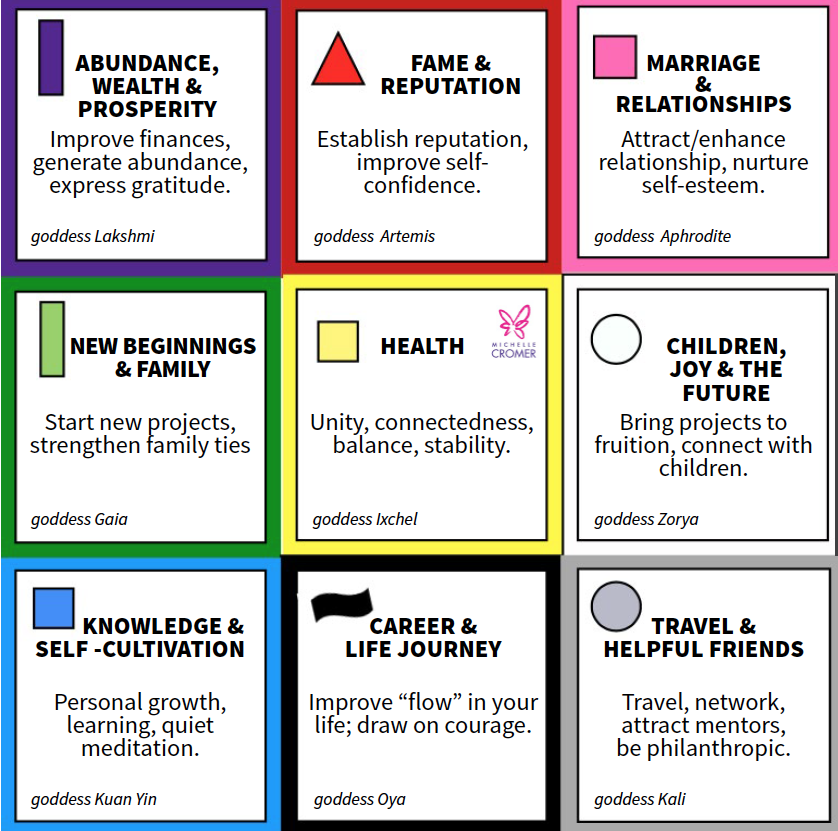
Celebrating your birthday with feng shui can be a fun way to spend your day. Traditionally, the Chinese reserved birthday celebrations for infants and those older than 60 years. For everyone else, it was spent in soul-searching. However, in the modern world, feng shui can be used to energize a birthday celebration.
There are several ways of celebrating a birthday with feng shui to ensure it is as auspicious a day as possible. Here are nine of my suggestions:
- Start the day with gratitude – Wrap yourself up with a feeling of gratitude and think of all the people and things in your life that bring you joy.
- Pray – according to your personal faith, offer up a prayer for all the blessings in your life.
- Call your parents – when my parents were living I would always call them up and thank them for having me. Even now I still say a prayer and thank them.
 Purification Bath – draw a bath and add Epson salt to purify your physical and spiritual body. Afterward, as the water goes down the drain think of all the challenges of the previous year going down the drain as well.
Purification Bath – draw a bath and add Epson salt to purify your physical and spiritual body. Afterward, as the water goes down the drain think of all the challenges of the previous year going down the drain as well.- Write out your birthday wishes – this will force you to be clear on what it is you want to accomplish. When you write out your wishes, you give yourself a destination to reach and a daily direction.
- Have an astrology reading – in astrology, everything starts and ends with your birth chart, the exact location, and the time of your birth. This reading will illuminate aspects of your life, both conscious and unconscious, and bring awareness to the possible timing of events in this year.
- Send yourself flowers – celebrate yourself with a beautiful bouquet of flowers! I find sending myself flowers is the perfect way to practice self-love.
- Blow out a candle – this tradition can be traced back to the ancient Greeks, who often burned candles as offerings for the many gods and goddesses. So make a wish and blow hard!
- Eat all your favorite foods – I eat from the moment I wake up until I fall asleep and normally I allow myself carbs, calories, sugar, and fat. So if you are like me, just this one day, enjoy all your favorite food groups.
There are many ways you can celebrate a birthday using Feng shui principles. Choose the ones that feel the most comfortable and natural and incorporate them into your annual birthday celebrations.
Have any Feng Shui questions? Feel free to contact me at michelle@michellecromer.com and sign up for your Power Color or visit me on Facebook at Michelle Cromer Feng Shui.

 The principles of feng shui have existed for thousands of years. It was first used in China for the graves of the royal family and then the ancestors. Like the
The principles of feng shui have existed for thousands of years. It was first used in China for the graves of the royal family and then the ancestors. Like the 



 The patio, deck, rooftop, or backyard is where most of your time will be spent during the next couple of months, so you might as well make it a place of peaceful balance and harmony. Below are six tips for bringing some feng shui to your own personal great outdoors.
The patio, deck, rooftop, or backyard is where most of your time will be spent during the next couple of months, so you might as well make it a place of peaceful balance and harmony. Below are six tips for bringing some feng shui to your own personal great outdoors. Wind chimes or flags increase the flow of chi creating balance in your yard and making it comfortable and a welcoming environment for your guests. They are believed to produce healing energy.
Wind chimes or flags increase the flow of chi creating balance in your yard and making it comfortable and a welcoming environment for your guests. They are believed to produce healing energy.